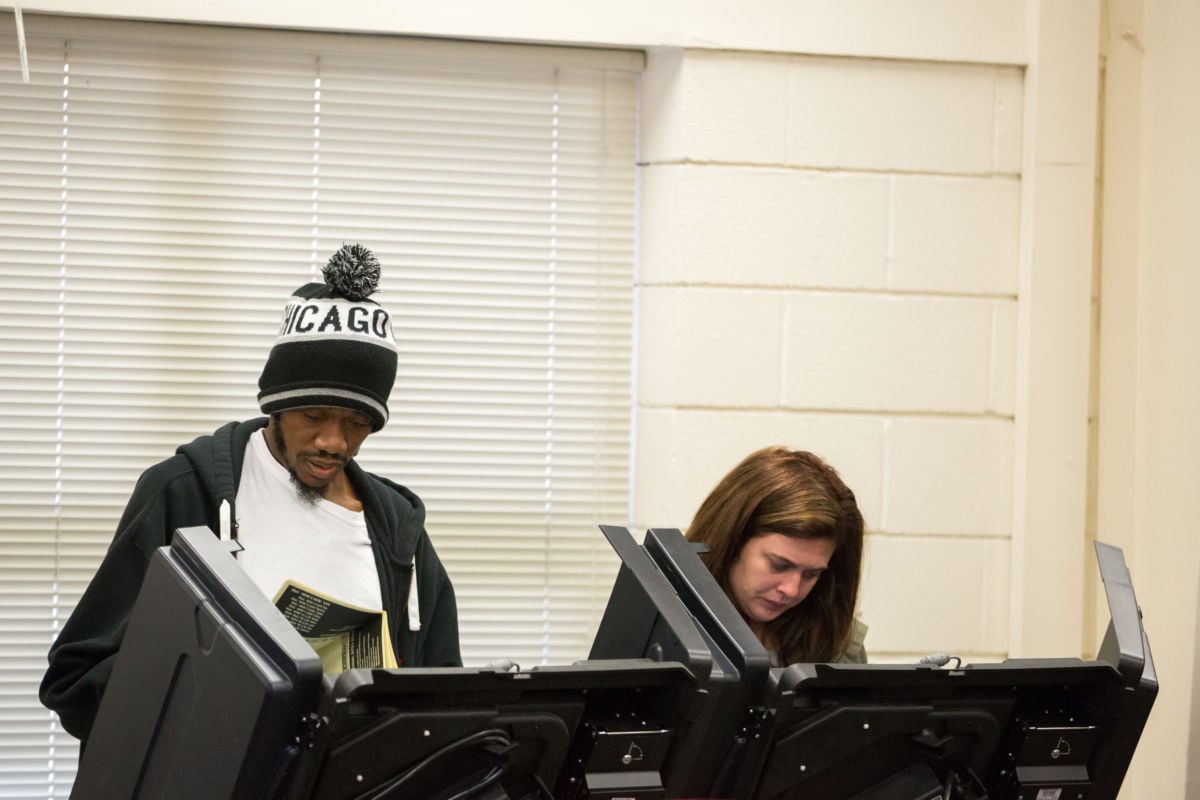Did you know that Truthout is a nonprofit and independently funded by readers like you? If you value what we do, please support our work with a donation.
When North Carolina’s Republican-controlled legislature passed the nation’s most suppressive state voting law in 2013, college students were among the most vocal opponents. They viewed it as discriminatory because it required voters to show identification at the polls but excluded student IDs from the acceptable forms.
The law set off a legal and political fight over using student IDs to vote that’s finally nearing a resolution. Critical deadlines are now looming for the state’s schools in advance of the 2020 election, in which North Carolina voters will have to show an ID to cast a ballot.
The state is among the 35 nationwide with voter ID laws on the books. Of those states, 18 allow voters who lack an acceptable form of ID to sign an affidavit and vote using a provisional ballot. Of the 17 states that reject ballots if the voter lacks acceptable ID, seven do not accept student IDs, including South Carolina, Tennessee, and Texas. Another five states including Alabama, Mississippi, and Virginia have strict voter ID laws but accept all student IDs. And five states — among them Georgia, Kentucky, and North Carolina — accept student IDs if the issuing institutions meet certain requirements.
Three years after North Carolina lawmakers passed the voter ID law that excluded student IDs, the 4th U.S. Circuit Court of Appeals struck it down as racially discriminatory. But GOP lawmakers almost immediately began devising a plan to put a new voter ID law on the books through the state constitutional amendment process. Last November, despite a campaign waged against it by voting rights advocates, North Carolina voters passed an amendment that mandated voters show some form of ID when they cast ballots starting in 2020.
Lawmakers released an early draft of the voter ID requirements the following month — and once again students were among those expected to be most impacted. The measure initially banned students at the state’s private colleges from using their student IDs to vote, though that provision was removed from the bill as it moved through the legislature.
However, the version that ultimately passed still presented challenges for both private and public schools. For example, it required that the photo used on the student ID be taken by the university itself, even though many schools allow students to submit their own photos for ID cards. It also mandated that universities submit an attestation letter under penalty of perjury that said the student IDs were issued following a verification of students’ citizenship status, Social Security number, and birthdates.
Many North Carolina schools were unable to meet the requirements. Some schools did not even bother to apply with the state elections board by the March 2019 deadline because they knew they could not qualify. Of the 850 colleges, universities, state and local employers and tribal entities eligible to submit requests to use their IDs for voting, only about 80 did. While all of the 17 schools in the University of North Carolina system applied for approval, only five qualified: Appalachian State, Elizabeth City State, North Carolina Central, North Carolina State, and the University of North Carolina at Asheville.
In response to the confusion and controversy surrounding the student ID requirements for voting, a bipartisan group of North Carolina state House members including two freshmen Democrats and two GOP leaders began working on a remedy earlier this year in the form of House Bill 646. It says the photo on the student ID no longer has to be taken by the school, which must instead detail the process used to attain it. It also strikes the mention of a penalty of perjury but requires the school to submit “documentation satisfactory to the State Board of Elections” that the requirements have been met. The measure passed the state House and Senate overwhelmingly and was signed into law by Gov. Roy Cooper (D) in June.
The law’s deadlines for submitting that documentation are now looming. Schools that did not previously apply to have their student IDs qualify as voter ID have until Oct. 26 to do so, and the state elections board has until Nov. 1 to issue a ruling. Schools that previously applied but had their applications denied — including the 12 schools in the UNC system — have until Nov. 15 to resubmit their applications, and the board has until Dec. 1 to make a decision in those cases.
Students at institutions whose applications are denied will not be able to use their student IDs to vote in 2020. According to Rep. Zack Hawkins, a Durham Democrat and one of the primary sponsors of HB646, over 900,000 students could be affected.
Media that fights fascism
Truthout is funded almost entirely by readers — that’s why we can speak truth to power and cut against the mainstream narrative. But independent journalists at Truthout face mounting political repression under Trump.
We rely on your support to survive McCarthyist censorship. Please make a tax-deductible one-time or monthly donation.
